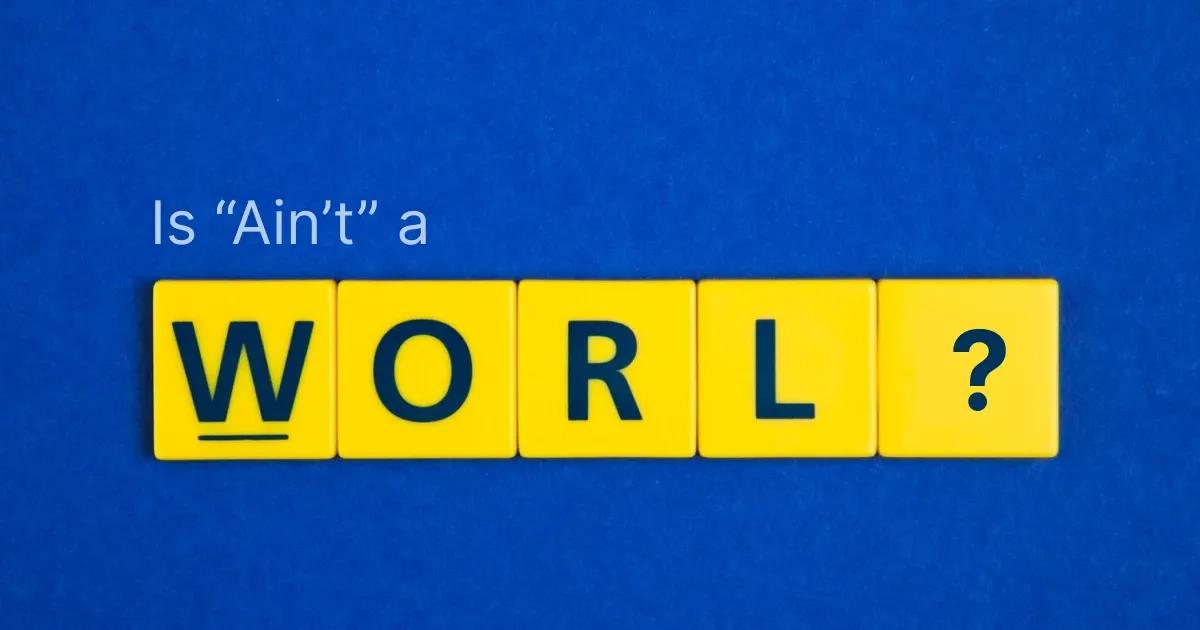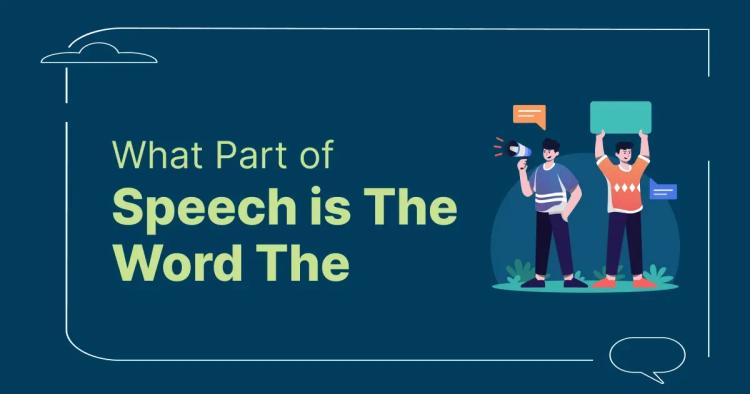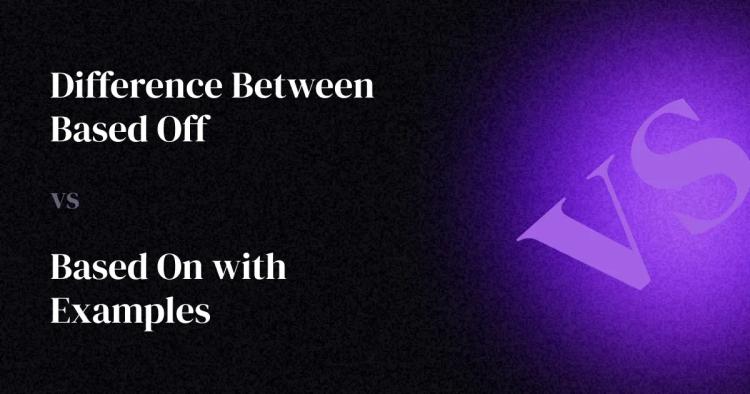Language is a treasure chest filled with words, each carrying a unique story. Among them, "ain't" stands as a mysterious word, sparking debates and raising questions. Imagine sitting around a cozy fire, surrounded by friends, each with their own opinion on whether "ain't" deserves a spot in our dictionaries.
Controversy dances around "ain't" like fireflies in the night. Some say it's a rebel, challenging the rules, while others see it as a friendly companion in everyday talk.
In this journey, we’ll explore the twists and turns of this four-letter word, unraveling its story and discovering why understanding its place in language is more than just a debate—it's a journey through the heart of how we communicate.
Historical Context of "Ain't"
Origin and Evolution of the Word
Picture yourself in the 18th century, where "ain't" made its first appearance. It wasn't born out of rebellious intentions; it started as a simple contraction of "am not." Over time, it decided to hang out with other contractions like "isn't" and "aren't," creating a unique identity for itself.
As the years rolled by, "ain't" evolved, adapting to the diverse landscapes of conversation. From informal chats to heartfelt expressions, it became more than just words—it became a friend in our daily dialogue.
Historical Usage and Social Connotations
Words aren’t just sounds; they carry the weight of culture and society. "Ain't" found its home in informal speech, creating bonds with communities who embraced its friendly simplicity. It became a symbol, not just of language, but of shared experiences and connections between people.
The story of "ain't" is more than a journey through time; it's a peek into the lives of those who made it a part of their everyday language. Understanding its history is like opening a dusty old book—you find stories, adventures, and maybe a few surprises along the way.
Linguistic Analysis
Linguistic Perspectives on the Legitimacy of "Ain't"
Delving into the linguistic realm, scholars and language enthusiasts have varying opinions about the legitimacy of "ain't." Some argue that it's a natural evolution of language, reflecting the way people speak in everyday life. Others, however, take a more traditional stance, emphasizing adherence to formal grammar rules.
In the linguistic debate, one perspective views "ain't" as a valuable contraction that succinctly conveys certain meanings, especially in spoken language. It captures a casual, conversational tone that connects people on a more personal level.
However, critics argue that such contractions might muddy the waters of clear communication, leading to potential misunderstandings.
Grammar Rules and Language Evolution
Grammar rules act as guardians of language structure, but they, too, change over time. Language, like a living organism, adapts to the needs and habits of its speakers. Some linguists argue that "ain't" represents a natural linguistic progression, adapting to the rhythm and flow of informal speech.
In this linguistic dance, "ain't" challenges traditional grammar norms, prompting us to question what is considered 'correct' or 'incorrect.' The evolution of language involves a constant negotiation between formal rules and the practicalities of everyday communication. "Ain't" serves as a fascinating case study in this ongoing linguistic evolution.
Dictionaries and "Ain't"
Inclusion or Exclusion in Dictionaries
Dictionaries are like time capsules, capturing the essence of a language at a particular moment. The journey of "ain't" through dictionaries is a testament to the dynamic nature of our linguistic landscape.
Some dictionaries include "ain't" with a nod to its common usage, recognizing it as a valid part of colloquial language. Others, however, may still resist, holding onto a more conservative approach.
The inclusion or exclusion of "ain't" isn't just about definitions; it reflects a broader conversation about language ownership. Does a word belong in the dictionary because it's widely used, or should dictionaries dictate what is 'acceptable'? This debate involves a delicate balance between preserving language traditions and embracing the organic growth of language.
How Dictionaries Reflect Language Changes
Dictionaries, much like language itself, are not frozen in time. They evolve to mirror the ever-changing linguistic landscape. When a word like "ain't" knocks on the dictionary's door, lexicographers must decide whether to welcome it in or keep the gate closed.
This decision is influenced by factors such as widespread usage, cultural significance, and the evolving acceptance of informal language. The process involves a continuous feedback loop between dictionaries and society. As language users, we contribute to this cycle by adopting words like "ain't" into our daily conversations.
Dictionaries, in turn, shape our perceptions by acknowledging or resisting these linguistic shifts, showcasing the dynamic interplay between language, culture, and the institutions that document them.
Common Usage and Acceptance
Current Usage Patterns in Everyday Language
"Ain't" isn't just a relic of the past; it's alive and well in our daily conversations. You might hear it in casual chats with friends, family gatherings, or even in movies and songs. It often sneaks into sentences, adding a touch of informality and familiarity.
Exploring its current usage patterns helps us understand how language adapts to suit our everyday communication needs.
Let's imagine a regular day - from ordering coffee to chatting with coworkers. In these moments, "ain't" might pop up, effortlessly becoming a part of our speech. Its presence in these everyday scenarios sheds light on its role as a bridge between formal and informal language.
Acceptance in Informal and Formal Contexts
Formality can be like a language dress code. Some words fit seamlessly, while others may raise an eyebrow. "Ain't" isn't shy; it appears in informal settings, creating a cozy atmosphere in conversation. But what about when the stakes are higher, like in a job interview or a school presentation?
Surprisingly, "ain't" has found its way into more formal spaces too, challenging the notion that certain words belong only to specific language domains. Examining its acceptance in both laid-back conversations and more serious discussions unveils the fluid nature of language, where words can transcend their expected roles.
In the end, the question isn't just about using "ain't" but about understanding how language bends and flexes to accommodate expressions that resonate with us.
Copychecker's Grammar Checker Tool
Copychecker isn't your typical grammar police; it's more like a helpful writing companion. Picture it as a virtual assistant for your sentences. As you type away, it keeps an eye out for grammar slip-ups and suggests improvements.
It's like having a friend who helps you polish your words before you share them with the world. This tool doesn't just focus on strict grammar rules; it also adapts to how people naturally express themselves.
It understands that language is diverse, and there's more to effective communication than just following a set of rigid guidelines.
How Copychecker Addresses Non-Traditional Words Like "Ain't"
Now, you might be wondering, how does Copychecker handle a rebel like "ain't"? Well, it approaches it with a balance of understanding and guidance. When it spots "ain't" in your sentence, it doesn't just slap a red mark on it.
Instead, it gently nudges you, suggesting alternatives or offering explanations, letting you decide how you want your words to flow. Copychecker doesn't shy away from non-traditional words. Instead, it embraces the variety in language, recognizing that effective communication isn't always about following the traditional rulebook but about finding the right tone for your message.
So, as you navigate your writing journey with Copychecker, it's not just about fixing mistakes; it's about crafting your unique voice while having a trustworthy grammar companion by your side.
Examples of "Ain't" in Copychecker
Demonstration of How Copychecker Processes "Ain't"
Let's dive into the world of Copychecker and see how it handles the word "ain't." Imagine you're typing a sentence like, "I ain't gonna make it on time." Copychecker doesn't just see the word; it analyzes the entire sentence to ensure it makes sense.
For instance, it checks if "ain't" fits well in the sentence or if there's a more formal way to express the idea. If your sentence is casual, like chatting with friends, Copychecker might give it a thumbs up.
However, if you're writing a formal email, it might suggest a more standard expression to keep things professional.
Insights into Its Grammar Suggestions for the Word
Now, let's peek behind the curtain and explore the insights Copychecker provides. If you use "ain't," Copychecker might highlight it and offer alternatives like "am not" or "is not." It's like having a helpful friend who gently nudges you toward different ways to express the same thought.
The tool aims to make your writing clearer and more polished. If you choose to keep "ain't" because it suits the tone you're going for, Copychecker respects that too. It's all about helping you communicate effectively while embracing your unique style.
User Perspectives and Experiences
Feedback from Users Who Have Used Copychecker with "Ain't"
Let's hear from people who've traveled the language road with Copychecker and "ain't." Sarah, a student, shares, "I used to get unsure about using 'ain't' in my essays. Copychecker helped me understand when it's okay and suggested alternatives for more formal writing. It's like having a grammar buddy by your side."
John, a professional writer, adds, "I was skeptical at first, but Copychecker surprised me. It respects my writing style but also points out areas where I can improve. It's like having a second pair of eyes focused on making my work top-notch."
How Grammar Tools Impact Language Perception and Usage
Grammar tools, like Copychecker, influence how we shape our words. They're not just correctors; they guide our language choices. Lisa, a Copychecker user, says, "Using tools like this has made me more mindful of how I express myself. It's not just about fixing mistakes; it's about evolving my writing style."
These tools become companions in our writing journey, adapting to our unique voices. The impact extends beyond correctness; it shapes how we present ourselves through language.
FAQs
Is "Ain't" a Real Word?
Yes, "ain't" is a real word, though its acceptance varies in different contexts. Linguistically, it serves as a contraction of "am not," "is not," or "are not."
Is "Ain't" a Scrabble Word?
Yes, "ain't" is a playable word in Scrabble, recognized by official dictionaries. It can score you points if strategically placed on the board.
Is "Ain't" a Compound Word?
Yes, "ain't" is considered a compound word. It results from combining "am not," "is not," or "are not" into a single, informal contraction.
If "Ain't" Isn't a Proper Word, How Is It in a Dictionary?
While some dictionaries include "ain't," its status can be contentious. It often finds its place due to widespread usage, reflecting the evolving nature of language recorded by lexicographers.
Is the Word "Ain't" Grammatically Correct?
The grammatical correctness of "ain't" depends on the context. In informal speech, it's widely accepted, but in formal writing, alternatives like "am not," "is not," or "are not" are often preferred for clarity and convention.
Conclusion
In the grand saga of language, "ain't" emerges not just as a word but as a symbol of linguistic evolution. As we navigate its history, linguistic analysis, and encounters with tools like Copychecker, we find that the journey is not just about a single word but a reflection of the dynamic nature of language itself.
In the end, the question of whether "ain't" is a word becomes a gateway to understanding the complex, ever-changing beauty of the words we use to communicate.




